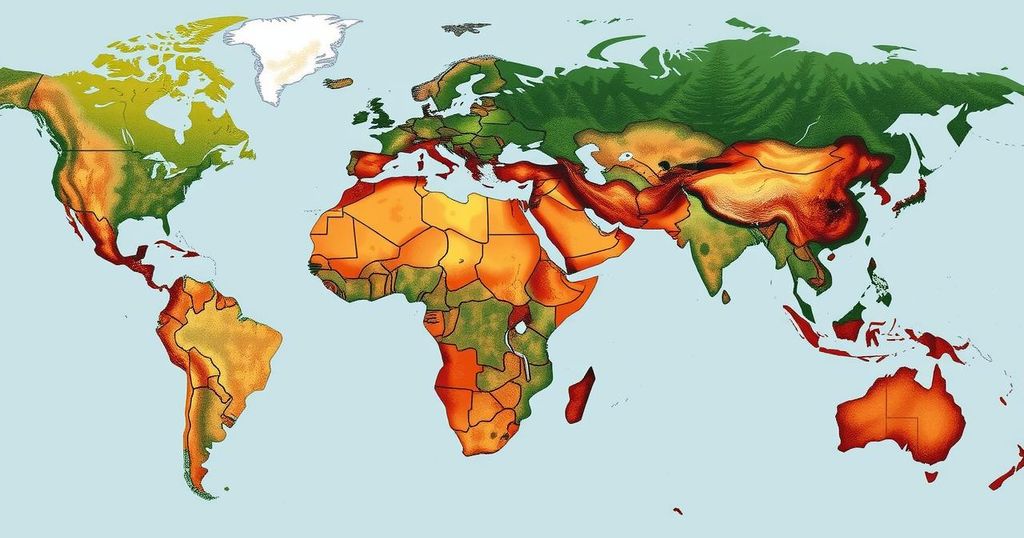In 2024, Africa faces escalating crises, including climate change impacts, a surge of migrant deaths, an increase in mpox cases, and ongoing armed conflicts. These challenges threaten the lives and livelihoods of millions, signaling the urgent need for enhanced governance and international support to address these interconnected issues effectively.
In 2024, Africa grapples with a plethora of crises encompassing climate change, migrant fatalities, mpox outbreaks, and armed conflicts, severely undermining the livelihoods of millions. Rising temperatures, coupled with an increase in natural disasters such as droughts and floods, have resulted in extensive human suffering and displacement. The devastating effects were notably exemplified by a dam burst in northeastern Nigeria, displacing approximately 400,000 individuals and leading to at least 37 fatalities. Furthermore, Somalia faces an unprecedented humanitarian crisis, with 6.9 million citizens in dire need of assistance due to extreme drought conditions, making it the country with the highest hunger rate globally, as indicated by the 2024 Global Hunger Index.
The challenges are exacerbated by an alarming spike in migrant accidents, as individuals attempt to escape armed conflicts and economic difficulties. According to the migration rights organization Caminando Fronteras, over 10,457 migrant deaths were documented by December 15, 2024, along maritime routes from Africa to Spain. This highlights the urgent necessity for safer migration pathways and responsible border management policies. Additionally, there has been a resurgence in mpox cases across the continent this year, prompting the World Health Organization to declare a public health emergency in the Democratic Republic of the Congo. With over 1,300 suspected deaths attributed to mpox reported, the urgency for comprehensive health interventions has never been greater.
Africa is also enduring relentless armed conflicts, with over 35 simultaneous non-international armed conflicts recorded across various nations. This ongoing violence has led to significant loss of life, mass displacements, economic downturns, and widespread humanitarian crises. Security and climate researcher Kazeem Olalekan stresses that African governments have inadequately addressed these intersecting crises, particularly the proliferation of small arms, which the leadership has largely ignored. He emphasizes the shortcomings in governmental health provisions and the need for serious investment in both health care and overall citizen welfare.
Experts assert that it is imperative for the international community to intensify efforts in securing peace, enhancing conflict resolution efforts, and addressing fundamental causes of unrest. Solutions such as promoting climate-resilient agriculture, fostering humane border management, and encouraging community engagement are critical in effectively combating future health crises like mpox and improving the general well-being of those affected.
The article discusses the multifaceted crises currently plaguing Africa in 2024. Climate change manifests through severe weather events, directly influencing food security and human health. Migration challenges have escalated due to conflicts and economic instability, leading to tragic outcomes. Additionally, the rise of mpox cases presents a public health emergency, further straining limited healthcare resources. Amidst these issues, armed conflicts continue to devastate communities, emphasizing the urgent need for comprehensive international support and effective governance to address these crises holistically.
In conclusion, Africa’s challenges in 2024 are deeply intertwined, encompassing climate change, health crises, migration tragedies, and armed conflicts. The affected populations require urgent humanitarian assistance, as their livelihoods are increasingly threatened. It is imperative for African governments to honor their commitments to citizen welfare while the international community enhances efforts to foster peace and health security. Without collaborative action, the situation is likely to worsen, exacerbating the continent’s vulnerabilities further.
Original Source: www.aa.com.tr






